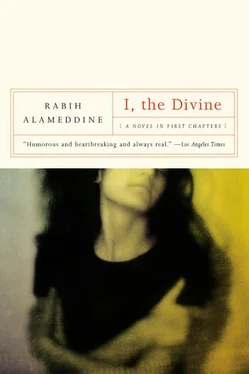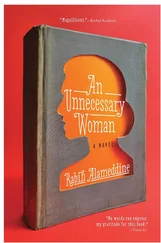However, during the years after the 1970 World Cup Finals, my stepmother was able to convince my father I was wicked. I watched the championship game with my family and saw the Brazilians tear the Italians apart. I did not know who the players were and actually thought Instant Replay was the best player because his name kept appearing at the bottom of the screen every time something really great happened. All I really knew was the Brazilians made coffee and Italians pasta. But then I saw Pele pass the ball to Jairzhinho for one of the goals and experienced a soccer epiphany. From that moment on, I knew how the game was supposed to be played, and that knowledge marked the beginning of my spiraling descent into disgrace.
I was a scrawny child, neither fast nor strong. But I developed impeccable control with a soccer ball and was blessed with something intangible, soccer vision. I could see plays developing long before they happened. I always knew where to be, where to send the ball. Even in the small, disorganized street games, without a pair of tennis shoes to call my own, it was apparent to any bystander that I was special. And that I was a girl.
One day, my stepmother looked out from the balcony, saw me down on the street playing, and had a nervous breakdown. She refused to speak to anyone, took tranquilizers, and locked herself in her room. My father slept on the couch. The next day, when she allowed my father into the room, they had a long conversation. All three of us, her stepdaughters, not her daughters, ended up in a half-boarding school, Carmel St. Joseph. The school was only four streets away from our house, but we slept there five nights a week. We left for school on Monday mornings and came back on Saturday afternoons. We had to wear uniforms. The nuns had been warned about me and behaved accordingly. I was treated as a troublemaker and I did not disappoint. I was not allowed to play soccer or any other sport in school. I had to watch while the other girls played volleyball or basketball, considered acceptable sports for girls, but not for me.
Luckily, my stepmother’s meddling in my life ceased, or more accurately decreased, with the birth of Ramzi, my father’s first son and the reason for his marriage to my stepmother. I was eleven. Both she and my father stopped caring about the girls and showered all their attention on the newborn son, the boy who was the sole reason for my father’s, and all his forefathers’, existence. Apocryphal stories abound about that “blessed” event. It is said that my mother, Janet, whom my father had divorced and sent back to New York because she could not deliver him a boy to carry on his name, wailed for one whole month beginning the instant the infant Ramzi himself wailed for the first time. It is said my father cried. All I know is that I was relieved.

What I recall from all the craziness of that day is the sound of the opening stanza of Deep Purple’s “Smoke on the Water” being massacred by Mazen, the boy living on the second floor. Funny what we remember. Setting my memory in time is easy. The first day of the war in Beirut, April 1975. I was fifteen. Shells and bombs fell all around us, but we must have had electricity since Mazen was playing his new electric guitar, had been for the last ten days since he had gotten it for his birthday, and no “political skirmish” was going to get him to stop. I distinctly remember wondering how he could play so badly. Every boy in Beirut played “Smoke on the Water” on his electric guitar, yet we had the misfortune to live above the one boy who was tone-deaf. He took his guitar out to the stairwell, while his parents desperately tried to shut him up. The giddy days.
My whole family was out of our apartment. The stairwell seemed the safest place, surrounded as it was on every side. My father sat sideways, with his back facing the wall, one knee close to his chest, crumpling his best brown suit. He looked so handsome in those days. His hair was still dark brown, his fierce eyes still indomitable. He smoked his cigarette, blowing smoke toward the upper floors. He spoke softly to us throughout, to keep us calm. “They can’t keep going on like this,” he said. “They’ll stop soon.” I noticed skin between his socks and the hem of his pants. His sock garters must have been loose. It was the first time I saw a flaw in his attire. My father’s name is Mustapha Hammoud Nour el-Din, M.D. Everyone called him Doctor, even his children sometimes. I called him Docteur Baba .
I smelled something peculiar in the air, what I discovered later to be cordite. The things we learn. In time, the smell of cordite, of garbage, urine, and decaying flesh, would become familiar to us, banal and clichéd.
Three loud explosions in a row rocked the building. Too close. Pallid-faced Ramzi, the youngest, screamed and burrowed deeper into his mother’s dress. My father winced. I assumed he was wondering if Ramzi was too young to be chided. Boys should never scream.
“They don’t seem to be letting up,” my stepmother, Saniya, said. She held her son close, caressing his hair. “Maybe we should move down and be with the neighbors.” She was rounded and soft, bearing an uncanny resemblance to Anna Magnani. She sat between her two daughters, Majida on her right, and Rana on her left, comforting them. She would look at us, her three stepdaughters, intermittently, wondering how she should comfort us. All three of us remained separate from her and the young ones.
Amal, my eldest sister, then nineteen, was about to get married. Gunfire could not dampen her mood. She leaned against the wall, resolute, wearing Jordache jeans and a lavender angora V-neck sweater, her face serene.
My other sister, Lamia, seemed unperturbed as well, but in a different mood. No amount of gunfire could transform the air of gloom around her. She sat, head bowed, not participating. She was almost eighteen. The dim light created shadowy havoc on her acne-scarred face. Her morose expression was only habit, through continual recurrence of an emotional display, the face reverted to it, habituated itself to it, even in repose. She did not seem to belong to our family, yet was an essential part of it.
I stared up at the water stains on the ceiling, at the peeling paint. I wondered whether the concierge would paint the stairwell if the building was damaged enough. Another shell fell close by.
“I’m sure it’ll be over soon,” I said. “They’ll get tired.” I smoothed my red dress. My hand curled a lock of my reddish brown hair.
My half-sister Rana wrote furiously in her diary. She wrote incessantly, considering the world nothing but material for her writing. My favorite sister was growing up to be a stunner, a heartbreaker in training.
“What are you writing?” I asked.
“I’m writing about this. Everything that’s happening. All the noise. Where it comes from, how unexpected. Why the stop, start, stop and start again. All the different sounds. Always coming from different places. I can’t tell where it’s coming from next.”
“No one can tell, my dear,” said Saniya. “No one’s sure who’s fighting whom. We just have to wait it out.”
“If I knew what to expect, it would be better,” Rana said. “I just don’t know what’s coming next.”
Something exploded not too far from us, making everyone jump. Ramzi screamed again. Rana reached out and patted his head. She seemed so adult. He began whimpering. I knelt down on the stairs below him and rubbed his tiny back. “It’s okay, hayatee . Everything will be okay. I promise.”
As if at my signal, the gunfire stopped. We heard men shouting, but we could not discern what was being said. “They seem to be on the roof of the building next door,” my father said. “That’s probably why the shells are dropping close.”
Читать дальше













